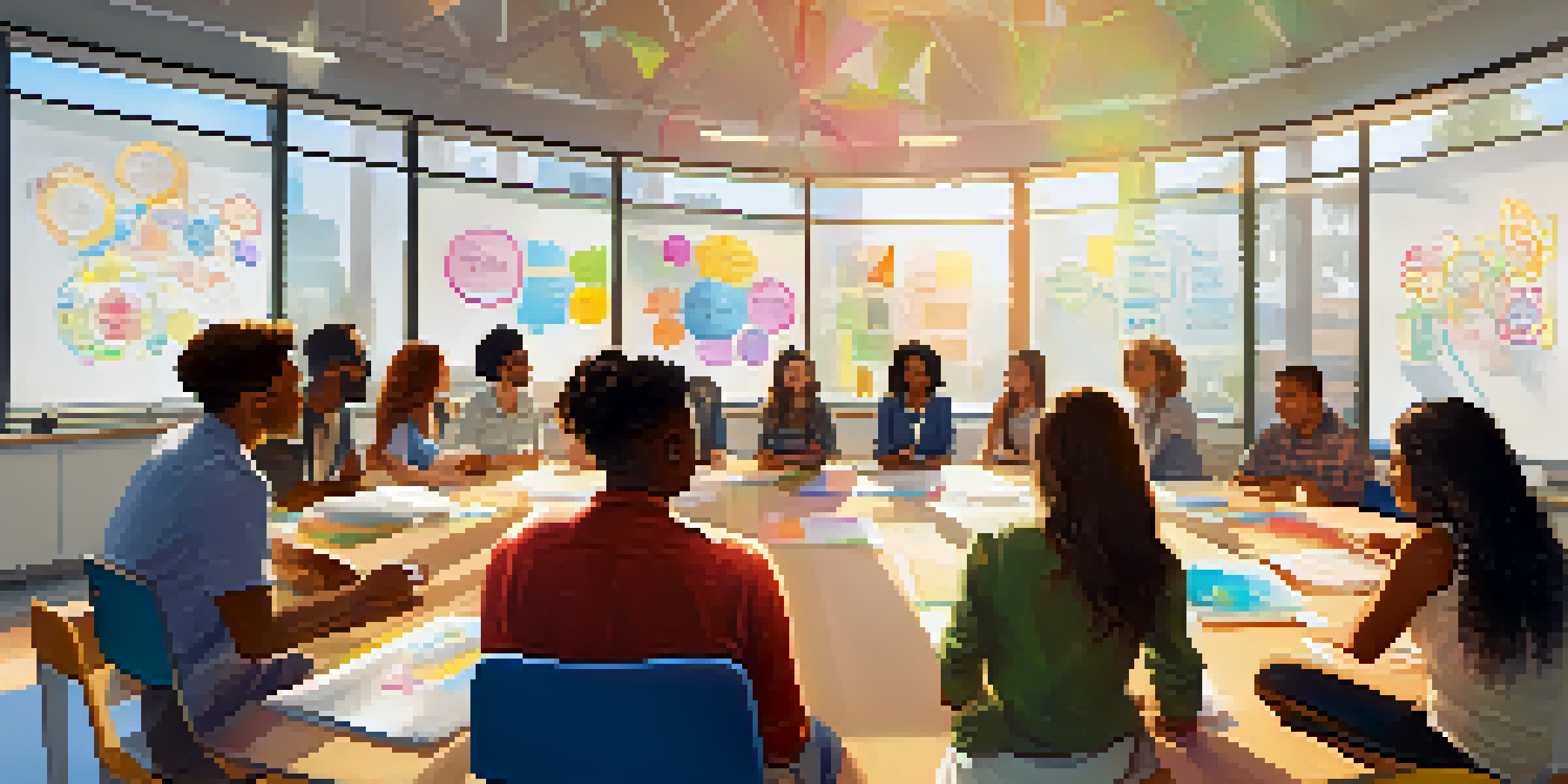Fostering Interpersonal Skills Through Peer Learning Activities

Understanding Interpersonal Skills and Their Importance
Interpersonal skills are the abilities we use to interact with others, such as communication, empathy, and teamwork. These skills are crucial not just in personal relationships, but also in professional settings, where collaboration is key. By developing strong interpersonal skills, individuals can build better relationships, improve their conflict resolution abilities, and enhance their overall emotional intelligence.
The Role of Peer Learning in Skill Development
Peer learning refers to the process where individuals learn from one another, often in a collaborative environment. This method is particularly effective for developing interpersonal skills, as it creates opportunities for students to practice communication and teamwork. When learners engage with their peers, they can share diverse perspectives, which enriches the learning experience and fosters deeper understanding.
Creating Effective Peer Learning Activities
To foster interpersonal skills, activities should be designed to encourage collaboration and open communication among participants. Group discussions, role-playing exercises, and project-based learning are excellent examples of such activities. By ensuring that these activities are structured yet flexible, facilitators can help participants feel comfortable sharing their thoughts and experiences.
Encouraging Reflection in Peer Learning
Reflection plays a vital role in peer learning, allowing individuals to evaluate their experiences and identify areas for improvement. After engaging in activities, encouraging participants to share their thoughts fosters deeper insights into their interpersonal interactions. This practice not only enhances learning but also empowers individuals to take ownership of their development.
Building Trust Through Peer Learning
Trust is a cornerstone of effective peer learning environments. When participants feel safe and respected, they are more likely to open up and share their thoughts. Establishing ground rules and fostering a supportive atmosphere can help build this trust, making it easier for individuals to engage fully in the learning process.
Measuring the Impact of Peer Learning
Assessing the effectiveness of peer learning activities is crucial for understanding their impact on interpersonal skills. Surveys, peer assessments, and self-reflection can provide valuable insights into how participants perceive their growth. By gathering feedback, facilitators can refine their approaches and ensure that the activities continue to meet the needs of learners.
Challenges in Implementing Peer Learning
While peer learning has many benefits, it can also present challenges, such as varying levels of engagement among participants. Some individuals may be hesitant to contribute, while others may dominate discussions. Addressing these challenges requires proactive facilitation and strategies that encourage balanced participation, ensuring that everyone has a voice.
The Future of Interpersonal Skills Development
As the workplace continues to evolve, the demand for strong interpersonal skills will only grow. Peer learning activities can play a significant role in preparing individuals for these challenges by providing them with the tools they need to communicate effectively and work collaboratively. Embracing this approach will not only benefit individuals but also contribute to more cohesive and productive teams.